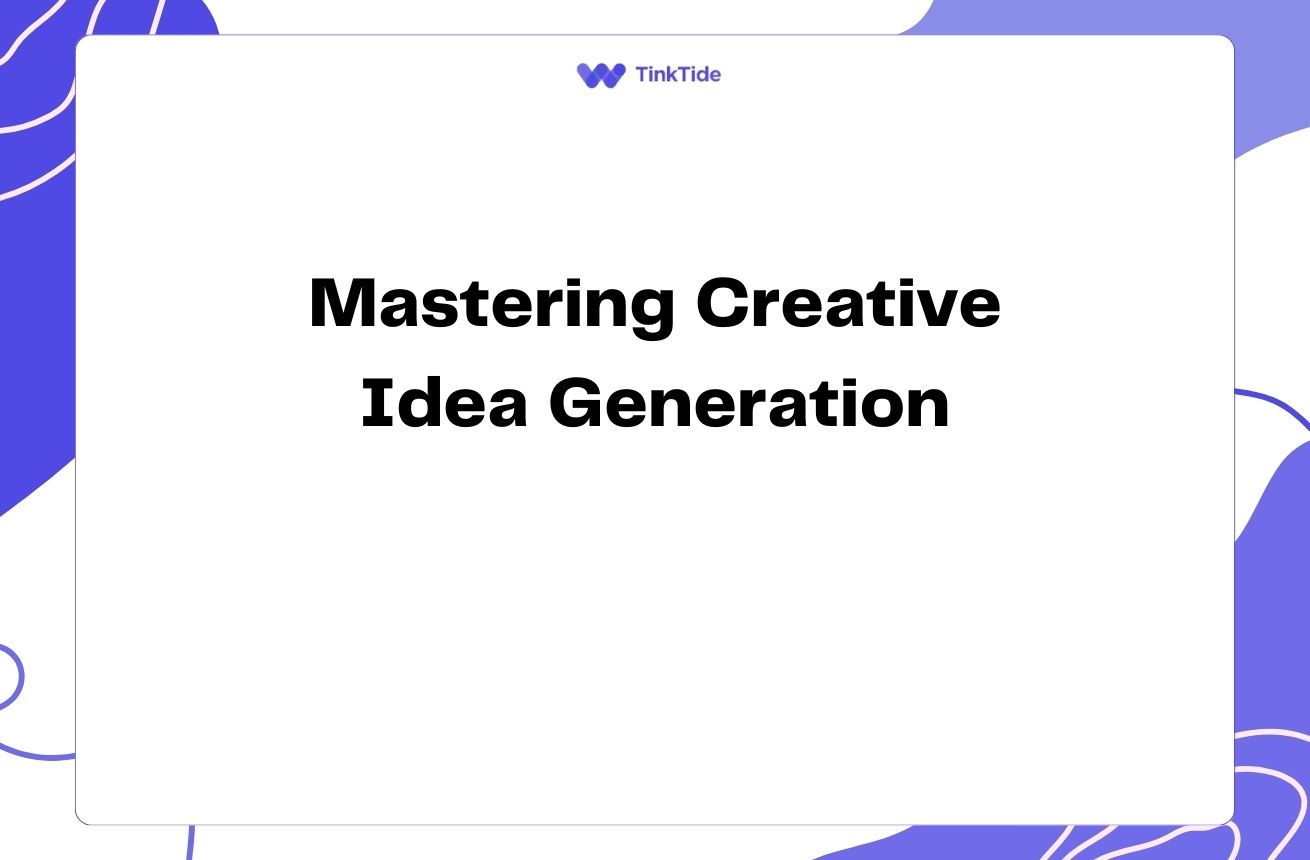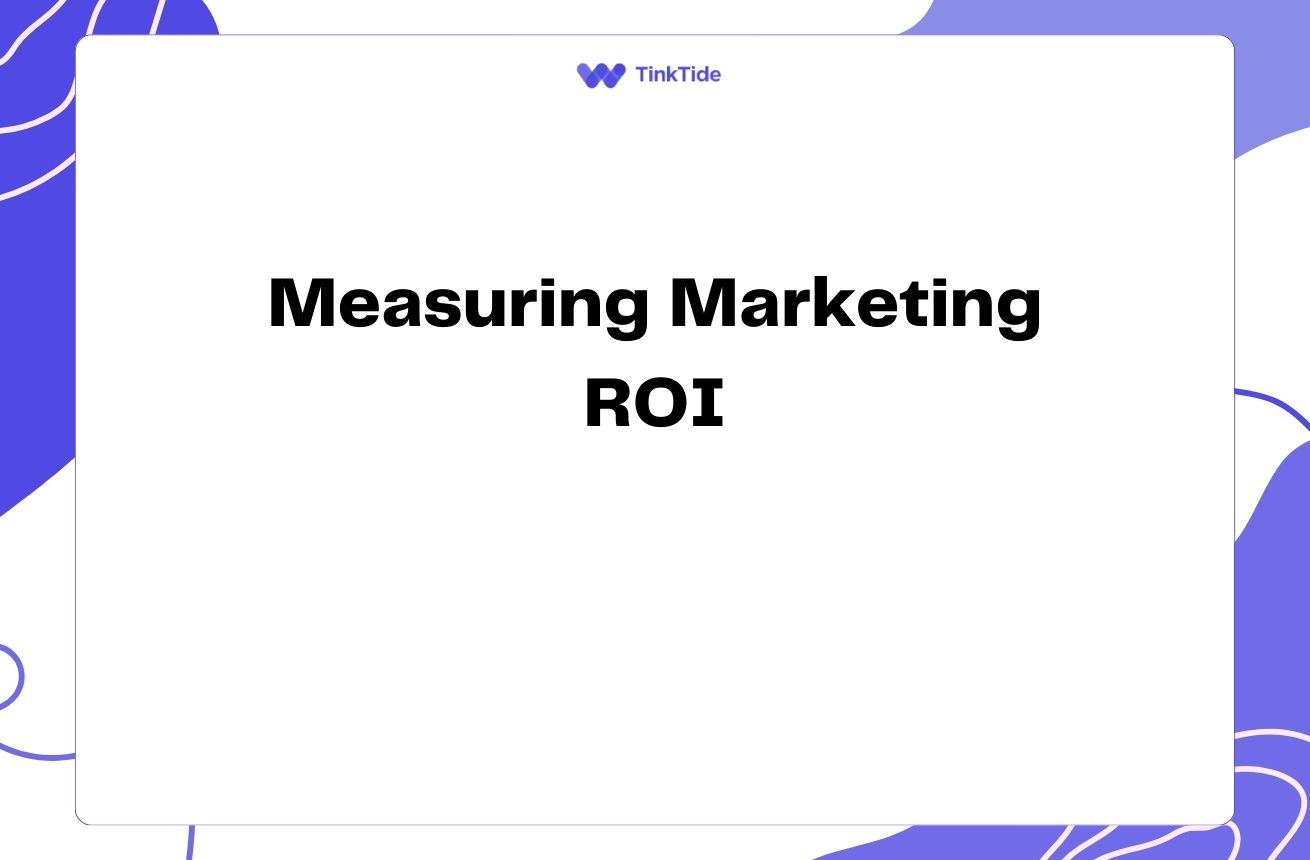Navigating the Ethical Maze of AI in Idea Generation
The AI Idea Revolution
Artificial Intelligence (AI) has revolutionized the way we generate ideas, offering unprecedented speed and scale in creative processes. From ChatGPT churning out marketing copy to Midjourney creating stunning visuals, AI is reshaping ideation across industries. However, this technological leap brings with it a host of ethical challenges that demand our attention.
As we harness AI's power for idea generation, we must grapple with questions of originality, bias, and the very nature of creativity. Are AI-generated ideas truly novel, or are they sophisticated remixes of existing data? How do we ensure that these ideas don't perpetuate harmful stereotypes or biases? These are just a few of the ethical quandaries we face.
Moreover, the use of AI in ideation raises concerns about job displacement and the devaluation of human creativity. As AI systems become more sophisticated, there's a growing fear that they might replace human creatives in various fields. This potential shift in the creative landscape necessitates a thoughtful approach to AI integration.
In this article, we'll explore the ethical challenges of using AI in idea generation and discuss the responsibilities that come with wielding this powerful tool. By understanding these issues, we can work towards harnessing AI's potential while mitigating its risks.
Key Ethical Challenges in AI-Driven Ideation
As we delve deeper into the world of AI-driven ideation, several key ethical challenges emerge. These issues require careful consideration to ensure responsible use of AI in creative processes:
- Originality and plagiarism concerns
- Bias and fairness in AI-generated ideas
- Transparency and explainability of AI systems
- Data privacy and consent in training AI models
- Intellectual property rights for AI-generated content
The Originality Dilemma
One of the most pressing ethical concerns in AI-driven ideation is the question of originality. AI models are trained on vast datasets of existing content, raising concerns about whether their outputs are truly original or merely sophisticated remixes of existing ideas. This blurs the line between inspiration and plagiarism.
For instance, Getty Images recently sued Stability AI, the creator of Stable Diffusion, alleging that the AI model was trained on copyrighted images without permission. This case highlights the complex legal and ethical issues surrounding AI-generated content.
To address this challenge, it's crucial to develop AI systems that can generate truly novel ideas while respecting intellectual property rights. This might involve creating AI models that can explain their reasoning process, allowing us to trace the origin of ideas and ensure they're not direct copies of existing work.
Additionally, users of AI ideation tools must be transparent about their use of AI and give proper credit where due. This transparency helps maintain trust and integrity in creative industries.
Battling Bias in AI-Generated Ideas
Another significant ethical challenge is the potential for AI systems to perpetuate or amplify existing biases. AI models learn from historical data, which often contains societal biases and stereotypes. If not carefully managed, these biases can seep into the ideas generated by AI, leading to unfair or harmful outcomes.
For example, research by Timnit Gebru and her team at Google highlighted how large language models can perpetuate gender and racial biases. This underscores the need for diverse teams in AI development and rigorous testing for bias in AI-generated content.
To combat this issue, we must prioritize diversity and inclusion in AI development teams. Additionally, implementing robust bias detection and mitigation techniques in AI models is crucial. Regular audits of AI-generated ideas for potential biases can help ensure fairness and inclusivity.
Furthermore, users of AI ideation tools should be aware of these potential biases and critically evaluate AI-generated ideas before implementation. This human oversight is essential in creating a responsible AI-human collaboration in the creative process.
Ensuring Transparency and Explainability
The 'black box' nature of many AI systems poses a significant ethical challenge in idea generation. When we can't understand how an AI arrived at a particular idea, it becomes difficult to assess its validity, originality, or potential biases. This lack of transparency can erode trust in AI-generated content.
To address this, there's a growing push for explainable AI (XAI) in creative applications. XAI aims to make AI decision-making processes more transparent and interpretable. For instance, IBM's AI Explainability 360 toolkit provides a set of algorithms and tools to help explain AI model decisions.
Implementing XAI in idea generation tools can help users understand the reasoning behind AI-generated ideas. This transparency not only builds trust but also allows for better evaluation and refinement of ideas. It can help identify potential biases or flaws in the AI's reasoning process.
Moreover, transparency extends to clearly labeling AI-generated content. Users of AI ideation tools have a responsibility to disclose when ideas or content are AI-generated, maintaining honesty and integrity in creative processes.
Navigating Data Privacy and Consent
AI models used for idea generation are often trained on vast amounts of data, raising important questions about data privacy and consent. The ethical use of AI in ideation requires careful consideration of how data is collected, used, and protected.
One major concern is the use of personal data or copyrighted material in training AI models without proper consent. For example, GitHub's Copilot faced a class-action lawsuit over allegations of using open-source code without proper attribution in its AI training.
To address these issues, companies developing AI ideation tools must prioritize data privacy and obtain proper consent for data used in training. This might involve developing new methods for anonymizing training data or creating synthetic datasets that don't rely on personal information.
Users of AI ideation tools should also be mindful of the data they input into these systems. Avoid using sensitive or confidential information that could compromise privacy or intellectual property rights.
Steps Towards Ethical AI Ideation
To navigate the ethical challenges of AI in idea generation, consider following these steps:
- Step 1: Educate yourself and your team about AI ethics
- Step 2: Implement transparency measures in AI use
- Step 3: Regularly audit AI-generated ideas for bias
- Step 4: Prioritize data privacy and consent
- Step 5: Maintain human oversight in the creative process
The Future of Ethical AI Ideation
As AI continues to evolve, so too will the ethical challenges and responsibilities associated with its use in idea generation. Staying informed about these issues and actively participating in discussions about AI ethics is crucial for anyone involved in AI-driven creative processes.
We're likely to see the development of more sophisticated AI models that can generate ideas while adhering to ethical guidelines. For instance, Anthropic's constitutional AI aims to create AI systems with built-in ethical constraints.
Additionally, we may see the emergence of new roles and professions dedicated to ensuring ethical AI use in creative fields. These 'AI ethicists' could play a crucial role in navigating the complex landscape of AI-driven ideation.
Ultimately, the key to ethical AI ideation lies in striking a balance between harnessing AI's creative potential and maintaining human values, creativity, and ethical standards. By addressing these challenges head-on, we can create a future where AI enhances rather than replaces human creativity.
Frequently Asked Questions
Here are some common questions about the ethical use of AI in idea generation:
Is it ethical to use AI for generating creative ideas?
Yes, it can be ethical to use AI for generating creative ideas, provided it's done responsibly. This involves being transparent about AI use, addressing potential biases, respecting intellectual property rights, and maintaining human oversight in the creative process.
How can we ensure AI-generated ideas are original?
Ensuring originality in AI-generated ideas is challenging but possible. It involves using AI models trained on diverse datasets, implementing originality checks, and combining AI outputs with human creativity. Always verify and refine AI-generated ideas before use.
What are the main ethical concerns with AI in idea generation?
The main ethical concerns include issues of originality and potential plagiarism, perpetuation of biases, lack of transparency in AI decision-making, data privacy concerns, and questions about intellectual property rights for AI-generated content.
How can we address bias in AI-generated ideas?
Addressing bias involves using diverse training data, implementing bias detection algorithms, regularly auditing AI outputs for bias, and maintaining diverse human oversight. It's also crucial to have diverse teams developing and using AI systems.
What responsibilities do users of AI ideation tools have?
Users of AI ideation tools have several responsibilities: being transparent about AI use, critically evaluating AI-generated ideas for bias or ethical issues, respecting intellectual property rights, protecting data privacy, and maintaining human creativity and oversight in the process.
How might AI in idea generation impact creative industries?
AI in idea generation could significantly impact creative industries by increasing efficiency, enabling new forms of creativity, and potentially changing job roles. However, it also raises concerns about job displacement and the devaluation of human creativity, making it crucial to find a balance between AI assistance and human ingenuity.
Additional Resources
AI Ethics Guidelines
UNESCO's Recommendation on the Ethics of Artificial Intelligence
Explainable AI
IBM's resources on Explainable AI
AI Fairness 360
Open-source toolkit for detecting and mitigating bias in AI models
The Ethics of AI in Creative Fields
Exploration of AI ethics in art and creativity
Future of Life Institute
Resources on AI ethics and safety
Embracing Responsible AI Ideation
As we've explored, the use of AI in idea generation brings both exciting possibilities and significant ethical challenges. By addressing issues of originality, bias, transparency, and data privacy, we can harness the power of AI while upholding ethical standards.
Remember, ethical AI ideation is not just about the technology itself, but how we choose to use it. It requires ongoing education, vigilance, and a commitment to responsible practices from all stakeholders involved in the creative process.
As you incorporate AI into your ideation processes, stay informed about ethical guidelines, be transparent about AI use, and always maintain human oversight. By doing so, we can create a future where AI enhances human creativity rather than replacing it, leading to more innovative, inclusive, and ethically sound ideas.
Explore Ethical AI Solutions
Discover how Tinktide can help you navigate the ethical challenges of AI-driven ideation.
Start Your Free Trial

